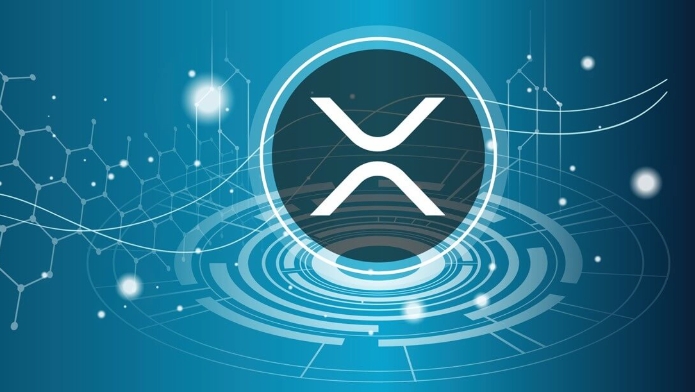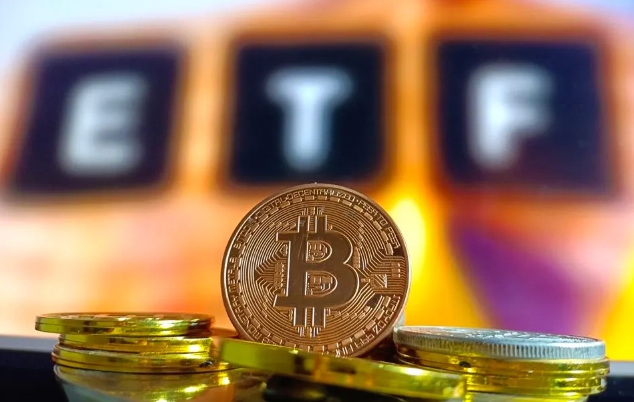 |
|
 |
|
 |
|
 |
|
 |
|
 |
|
 |
|
 |
|
 |
|
 |
|
 |
|
 |
|
 |
|
 |
|
 |
|
Cryptocurrency News Articles
When will FTX register for the next round of distribution? Which claimants are eligible?
Feb 19, 2025 at 02:22 pm
The next round of FTX allocation registration time is determined as April 11, 2025. The allocation is expected to start on May 30. Category 5 and 6 claimants and those who are first approved for convenience claims can participate. Registration must be paid attention to the process and fraud prevention.

FTX next round of allocation registration time is determined
Recently, new progress has been made in FTX's bankruptcy and restructuring, and the next round of allocation registration time has been settled. According to official FTX releases, the next round of allocation registration date is April 11, 2025, and the allocation is expected to begin on May 30, 2025.
This news is undoubtedly an important time node for many investors, creditors and other related groups who are closely following the subsequent development of FTX and waiting for capital recovery. Since FTX's sudden outbreak, its asset disposal, debt repayment and other issues have been attracting much attention. This clear registration time and allocation time have given everyone a clearer expectation in the long wait.
Applicable claimant type
Class 5 Customer Equity Claim Holder
Class 5 customer equity claim holders are mainly those who have certain assets on the FTX platform. During the normal operation of FTX, they deposit funds, cryptocurrencies and other assets in FTX for trading, investment and other activities.
When FTX crashed and went bankrupt, their assets were at risk of loss, thus becoming claimants. For example, some large-scale cryptocurrency investors store a large number of digital assets such as Bitcoin and Ethereum in FTX accounts, preparing to perform band operations or long-term holding and appreciation. FTX's bankruptcy makes their assets frozen and cannot be withdrawn and traded normally. , such investors belong to Class 5 customer equity claim holders.
They can participate in the next round of distribution because their assets originally belong to them, but were implicated and damaged due to FTX's operating problems. They should obtain corresponding funds backflow during the disposal and restructuring of FTX's assets to make up for the losses.
Category 6 General Unsecured Claim Holders
Generally, unsecured claims refer to the creditor having a claim against the debtor, but there is no corresponding collateral to guarantee the realization of the claim. In the FTX incident, such holders may be FTX suppliers, providing FTX with technical services, office equipment and other goods or services, but FTX has not paid the corresponding payment yet; it may also be some financial institutions that have provided loans to FTX (If the loan is not guaranteed), etc.
After FTX's bankruptcy, they can only participate in bankruptcy distribution as general unsecured creditors because there is no collateral to be paid first. For example, a small technology company developed a transaction-assisted software for FTX, which still owes the company a considerable software development fee, belonging to Class 6 general unsecured claims holders. Their participation in this distribution is based on the principle of fairness. In the liquidation and restructuring of FTX assets, they obtain corresponding debt repayments in a certain order and proportion to protect their legal claims.
A convenient claim holder approved after initial registration
Convenient claims usually refer to claims with relatively small amounts and relatively simple processing procedures. For convenience claims holders who have been approved after the initial registration but have not received the distribution, this time there is a new distribution opportunity. For example, some retail investors with only a small amount of cryptocurrency assets on the FTX platform may have a claim amount of several thousand dollars or even less, which falls within the category of convenient claims.
Previously, although their claim application was approved for various reasons, the allocation was not received in a timely manner. They can also participate in this registration on April 11, 2025 and are expected to obtain their own funds in the next round of allocations starting on May 30, which reflects FTX's continuous improvement of the process during the allocation process and ensures that all All rights and interests of claimants can be properly handled.
Allocation registration process and precautions
For eligible claimants, when making allocation registration on April 11, 2025, you must first make sure you have the relevant identity verification materials prepared. Identity verification is a key link in the registration process. It can ensure the authenticity and uniqueness of the claimant's identity and prevent fraudulent behaviors such as impersonation. For example, the claimant may need to provide a valid government-issued identity document, such as a passport, ID card, etc., to prove his identity.
At the same time, submitting tax forms is also one of the important steps. Tax issues are crucial in financial transactions and asset allocation. Submission of accurate tax forms can ensure the legality and compliance of allocated funds and avoid possible subsequent tax disputes. For example, claimants in the United States may need to submit a W-8BEN form, etc., to indicate their tax status and related information.
During the entire registration process, claimants must remain vigilant and prevent risks such as phishing fraud. After FTX burst, its related claims have attracted much attention, and some criminals have also taken this opportunity to try to defraud the claimant's personal information and assets.
A claimant once received a request to reset the password from "support@ftx.com". Although the email address seems to be the official FTX customer service address and the link is also linked to the FTX claim website, it is likely that the attacker obtained the email address. After permission, a phishing method that tries to defraud personal information through email.
Therefore, when claimants receive any email or information related to FTX allocation registration, do not easily click on the links therein, and be sure to log in to the official designated claim website to operate. In addition, some requests for providing sensitive information, such as bank card passwords, private keys, etc., must be firmly rejected, because the official will not request such information during the allocation and registration process.
Disclaimer:info@kdj.com
The information provided is not trading advice. kdj.com does not assume any responsibility for any investments made based on the information provided in this article. Cryptocurrencies are highly volatile and it is highly recommended that you invest with caution after thorough research!
If you believe that the content used on this website infringes your copyright, please contact us immediately (info@kdj.com) and we will delete it promptly.
-

- After the Pascal hard fork, there are Lorentz and Maxwell upgrades. What are the differences between them?
- Feb 21, 2025 at 05:25 pm
- In 2025, BNB Chain will carry out Pascal hard fork and Lorentz and Maxwell upgrades, which will have differences in performance and security, and will have a wide impact.
-

- When will the BNB Smart Chain Pascal hard fork upgrade start? Is the mainnet and testnet time the same?
- Feb 21, 2025 at 05:16 pm
- BNB Smart Chain will be upgraded on February 25, the main network will be upgraded in mid-March, and there will be subsequent upgrades in April and June, bringing various functions improvements.
-

- The 21-day public comment period has been triggered. When will the XRP ETF actually be launched?
- Feb 21, 2025 at 05:09 pm
- On February 21, Grayscale XRP and four Solana ETFs applied to be included in the SEC Register. The XRP ETF was approved to have variables, which was affected by multiple factors.
-

- Grayscale XRP ETF application entered into the SEC federal register, what are the prospects for approval?
- Feb 21, 2025 at 05:01 pm
- On February 21, Grayscale XRP ETF and other applications were approved to be affected by multiple factors such as supervision, law, and market, and the prospects have attracted much attention.
-

- The wave of legislation of Bitcoin Strategic Reserves Act is coming, how will traditional finance respond?
- Feb 20, 2025 at 06:13 pm
- The Bitcoin strategic reserve bill is creating a legislative wave in the US. Traditional finance faces disintermediation risk, market share erosion, regulatory dilemmas like compliance complexity and jurisdictional conflicts. Possible responses include innovating financial products, enhancing risk management, and collaborating with fintech to adapt to the new situation.
-

- The Ethereum Foundation has abandoned neutrality at the application level. How can we ensure that the supported projects are worth doing?
- Feb 20, 2025 at 05:32 pm
- How the Ethereum Foundation ensures that the supported projects are worth doing when the application layer abandons neutrality. The key points of the evaluation project are explained in terms of technological innovation, social value, team capabilities, market feasibility, compliance and community ecological adaptation.
-

- Why did OdinSwap and Valhalla cease operations? How to ensure the safety of user funds?
- Feb 20, 2025 at 04:12 pm
- On February 20, Bitcoin network rune platforms OdinSwap and Valhalla will be suspended for operations. Due to decline in transactions, competition, etc., users can provide 2.28 prerequisites.
-

- Bitcoin ETF now has net inflows, Ki Young Ju says the bull market will continue until capital outflows, when will the bear market come?
- Feb 20, 2025 at 03:38 pm
- On February 20, Ki Young Ju posted that demand for Bitcoin ETFs has slowed down and the bull market continued to flow out, attracting market attention.
-

- Bitcoin ETF demand slows but still sees net inflows, will the bull market continue until capital outflows?
- Feb 20, 2025 at 03:35 pm
- CryptoQuant CEO Ki Young Ju said Bitcoin ETF demand slowed down and still had net inflows, and the bull market continued until capital outflows, and supply and demand were key to the market.


























































